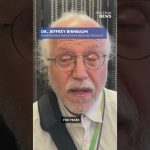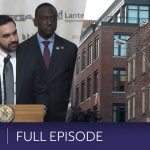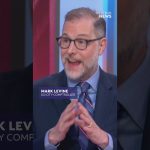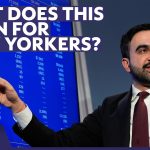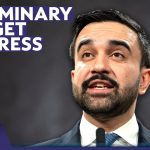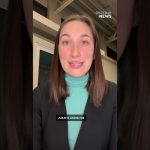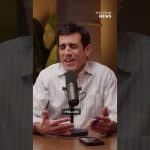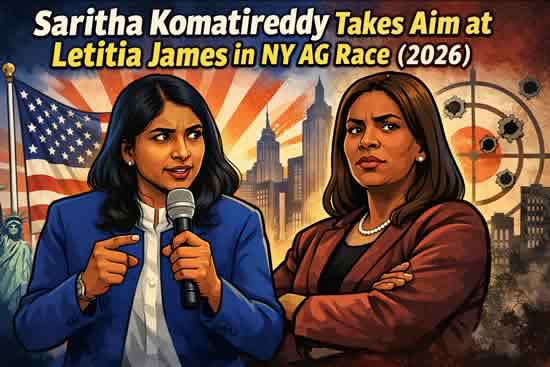Mayor Eric Adams: I remember when Sister Cleare was working for then Bill Perkins and I had to go do a meeting for her, and I walked in the room and I said, “Sister, your skin is definitely kissed by the sun and it blessed us all.”
There isn’t a challenge and permit process for everything in this city, the challenge comes when we want to do something. And what First Deputy Mayor Sheena Wright and I, and our entire team, in our analysis, whenever we wanted to do a parade, it was a challenge. Whenever we wanted to do some form of festivity, it was a challenge. When we wanted to put a sign on a building, there was a challenge. There was always a challenge, and people can be theoretical on why we can’t do something, how about being practical on why we can do something? We got to make these things happen in our community, because our community, we have often been sidelined on so many levels. Communities have been locked out. The Japanese community could not have a parade on the street, they had to march in the park, and we said, “That’s not happening anymore.” Something as simple as flag raising.
Cities were not allowed to appreciate all that government was supposed to do for the people of cities, and there was just a different city. Some were able to just seamlessly go through the process and get whatever they want done when they want to do it. But whenever folks from the outer boroughs or from Harlem, from the Bronx and other areas, it was always a challenge. Not in this administration. It’s one city, one process, one way, and we wanted to make this happen. We had an amazing senator as a partner, and getting it done. And thank you, Valerie Jo Bradley and Save Harlem Now, 60 years later, there’s so many stories that come out of the March on Washington that I believe people don’t know.
One of them that was inspiring for me, around the front and the side of the March on Washington were people like [inaudible], one of the longest standing first grade detectives in the transit bureau at the time.
And he shared the story with me, with him and [inaudible] and others, how the Guardians Association was there in Washington, the Black Police Fraternal Organization was there in Washington, to protect Dr. King, Brother Rustin, the other leaders who came together. They played a significant role for me when I became a Guardian Association, chairman of the Guardian as a police officer. And when Reverend Sharpton’s life was threatened, Black police officers stood up and said, “We are going to be there and protect Reverend Sharpton during those most difficult times.” He and his family, his two daughters who we were there to provide that protection for, and they inspired me, and that moment was significant.
But today’s day, 60 years later, is significant because it is saying something. The grandest of ideas do not take place in the grandest of places. It takes place in the basements, in the hall, and small church environments. That’s how it’s done. That’s how it’s done. And when people are able to go in these small spaces… This march was dealing with housing, was dealing with jobs, was dealing with economic recovery, was dealing with employment. Does that sound familiar?
So we had the Rustins of yester years, we had the Dr. Kings of yester years, we had all those leaders who were meeting to move the conversation forward. So 60 years later, the question becomes, we still need the Rustins of today, we still need the Dr. Kings of today. We must still meet in these basements to get things done. And let’s be clear on this. During the time when Dr. King was pricking the consciousness of America, they were not treating him kind. Let’s not all of a sudden romanticize and have a false impression of what was happening. Go look at some of those articles back then. Go look at how they treated Dr. King and what he was trying to do. So yes, everybody’s celebrating him now, everybody’s talking about the March on Washington, but go back and Google some of those articles and how Dr. King was treated.
And then, you’re going to fast-forward and say, “Wait a minute, were they talking about Dr. King or was they talking about Hakeem Jeffries, who was a minority lead in Congress. Are they talking about Andrea Stewart-Cousins? Are they talking about Deputy Mayor Sheena Wright or Deputy Mayor Williams-Isom? Who are they talking about? If you fast-forward today, if we don’t control our narrative, someone else will control our narrative. And that is why it’s important when you have a senator like Cordell Cleare holding down…
I’m always doing a number on her name. When you have her doing what she’s doing in Harlem, Senator Cleare has really led in a very significant way in Harlem, it comes from the ground up. That’s the message today, and that’s why this was so important to do this plaque naming, and she understood it. So when folks walk past here, they would see this and it would inspire them. It inspired me as a child, looking with mom and dad, sitting down on the couch, watching that, a period of time. It impacted us watching Brownsville burn the day that Dr. King was assassinated. It impacted all of us. We were all traumatized, and we continue to live through that traumatization.
And so, as we place this plaque, let’s renew our spirits of today’s time. We have so many challenges in front of us, but we can overcome, if we do it together, and if we unify around a sense of purpose, I believe keep God at the center of our lives, and stay true to our mission, and stay focused on what we have to do. So senator, I thank you for being a visionary, and I thank the entire team for making it happen. Thank you so much.
State Senator Cordell Cleare: Thank you. And you stay right here with me because we are going to do the unveiling out of order, out of respect, for the mayor’s schedule. But there’s some people here I really have to mention, and if I don’t call your name, just tell me. But I got to say this, and starting with the Mayor’s Office, Tiffany Brown, who’s always here. Where are you, Tiffany? Always with us, always.
David Johnson, please don’t block my calls. You see I’m doing this, right? So when I need you again, remember I did this. No, thank you, always. A son of Harlem, always here with us. Thank you, we love you. I want to talk, Don Jones, Nan, you’re here, thank you, Don. My dear friend and such a knowledgeable gentleman, passionate, you either like him or you don’t, Michael Henry Adams, and I like him. Thank you, he keeps us together on that history. Thank you so much. Hold on, I’m coming.
[Crosstalk.]
Mayor Adams: I love it. And the way to do it is just hit me on my cell phone and ask me. You don’t have to wait for this. Everybody has my number, just reach out and say, “Brothers, we want to accomplish the task,” and let’s sit down, let’s navigate and make it happen. We are trying to GSD, get stuff done. That’s all you have to do, brother, just ask. Here’s the rule in this administration. I follow the law, but I make policy. If it’s within my strength to do it, I’m going to do it. I follow the law, but I make policy. And so, let’s sit down and figure out how to get this done, and if it’s within policy, we’re going to get it done.
170 West 130th Street New York, NY 10027 August 28, 2023
Video – Mayor Adams Delivers Remarks to Celebrate 60th Anniversary of March on Washington for Jobs & Freedom
New York City Hall NYC Mayor Eric Adams Office News – Big New York news BigNY.com
– Midtown Tribune News –

